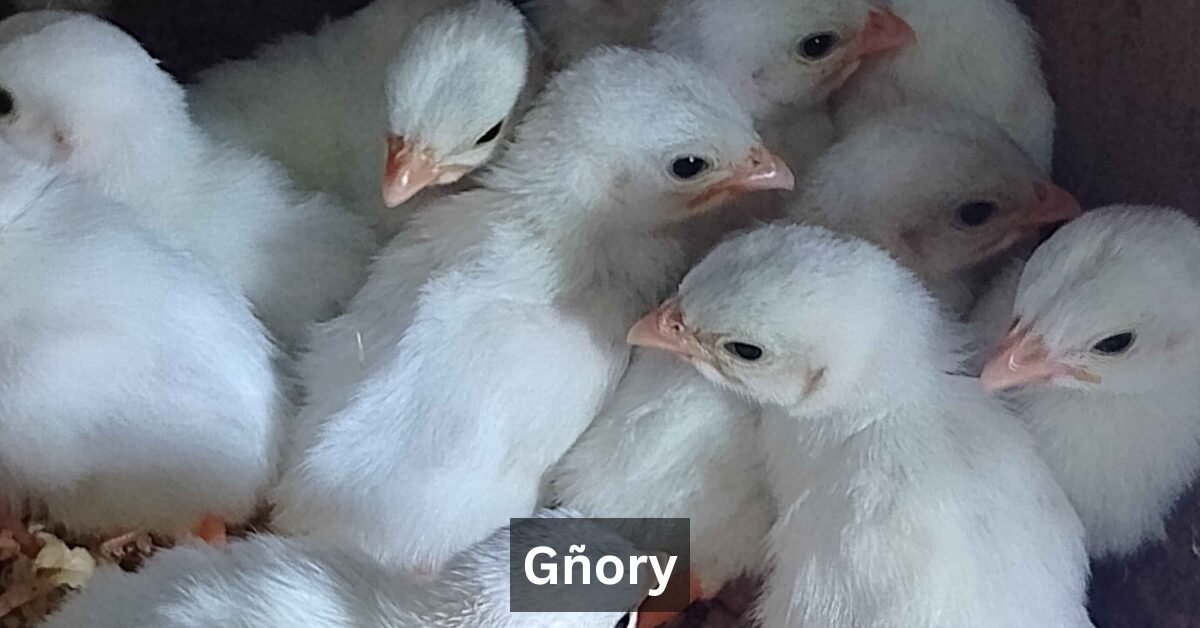The exact meaning is unclear, but it is an emerging internet slang term. One such intriguing term that has captured the curiosity of digital enthusiasts is “gñory.” But what exactly is gñory? Is it a meme, a slang term, or a deeper cultural phenomenon? While there is no widely accepted definition, gñory appears to be an emerging digital slang that is gaining attention in internet subcultures. It is still in its early stages, but its unique spelling and phonetic structure make it stand out from traditional English words. The use of “ñ”—a letter commonly found in Spanish—adds an element of mystery and international appeal. With social media driving rapid linguistic trends, gñory could soon become a widely recognized term across platforms like TikTok, Reddit, and Twitter.
The excitement surrounding gñory comes from its enigmatic nature. It does not have a clear-cut meaning, but that is precisely what makes it fascinating. Unlike established slang terms like “lit” or “vibe,” which have direct connotations, gñory seems to function as a flexible expression that can be adapted to different contexts. Whether it signifies a mood, a movement, or an identity, its ambiguity fuels curiosity and invites users to interpret it in their own way. This is the hallmark of modern internet language—words are no longer static definitions but dynamic symbols shaped by online interactions.
Tracing the origins of gñory is no easy task. Unlike traditional words that evolve from historical linguistics, internet-born words often appear suddenly and spread through viral engagement. Gñory seems to have surfaced on digital platforms, where linguistic creativity thrives. One possible explanation for its creation is the fusion of different language influences. The inclusion of “ñ” hints at a Spanish or Latin American connection, but the “-ory” ending is commonly found in English words. This combination makes gñory a globalized term—one that defies traditional language barriers and represents the fluidity of online communication.
Another possible origin of gñory lies in meme culture. Many internet trends start as inside jokes within small communities before exploding into mainstream usage. Reddit, 4chan, and Discord have long been incubators for linguistic innovation, where niche phrases gain traction before spilling over into TikTok and Twitter. If gñory follows this pattern, it is likely a community-driven term that evolved organically. Similar to words like “yeet” and “simp,” it may have started as a joke or reaction phrase before morphing into a more complex idea. The ability of internet users to take a simple word and transform it into a viral sensation is a testament to the power of digital culture.
Gñory in Digital Culture & Social Media
Social media plays a massive role in shaping and spreading new words, and gñory is no exception. On platforms like TikTok, Reddit, and Twitter, short-form content and viral challenges have made it easier than ever for new terms to gain traction. If gñory is actively being used, it is likely appearing in hashtags, meme captions, and video trends. These platforms create an environment where users adopt new language trends quickly, reinforcing their meaning through repetition and engagement.
One of the reasons gñory resonates with digital culture is its open-ended nature. Unlike traditional words with rigid definitions, internet slang is often context-dependent. A word can mean different things depending on how it is used in a tweet, a comment section, or a meme. Gñory could be a reaction phrase, an inside joke, or even a descriptor for a specific online aesthetic. Its versatility allows it to blend seamlessly into various internet subcultures. From TikTok influencers to Reddit discussions, users are experimenting with gñory in ways that make it feel organic and exciting.
The Linguistic Evolution of “Gñory”
Linguists have long studied the evolution of language, but the internet has sped up this process dramatically. Traditional language development took centuries, but digital slang can emerge and evolve within months. The study of internet-born words has become a key focus for linguistic experts like Noam Chomsky and David Crystal, who analyze how modern communication is reshaping language structures. Gñory fits into this discussion as an example of how new words are formed, adopted, and adapted.
Historically, slang terms that gain mainstream popularity tend to follow a pattern. They start in small online communities, gain traction through repeated usage, and then transition into mainstream media. Words like “selfie,” “YOLO,” and “binge-watch” were once niche terms before they became recognized in major dictionaries. If gñory follows a similar trajectory, it could eventually become a standard part of digital communication.
The Cultural Impact of “Gñory”
Words are more than just tools for communication—they are cultural markers that reflect the values, humor, and identity of the communities that use them. Gñory could symbolize the playful, boundary-breaking nature of Gen Z and Millennial communication. Younger generations have embraced a fluid approach to language, where traditional grammar rules take a backseat to creativity and expression. The rise of emojis, abbreviations, and viral terminology proves that language is shifting to accommodate the fast-paced nature of online discourse.
Moreover, gñory might represent a sense of belonging. Internet slang often functions as a form of community-building, where certain words or phrases signal membership within a group. Whether it’s gamers on Twitch, meme creators on Reddit, or influencers on Instagram, each subculture has its own lexicon. Gñory might be one of those words that connects people across digital spaces, giving them a shared reference point in online conversations.
SEO Insights: Why “Gñory” Matters in Online Search Trends
From an SEO perspective, gñory is an intriguing case study. Google’s search algorithm prioritizes emerging trends, especially when new words gain traction. If gñory continues to be used frequently on platforms like TikTok and Twitter, search volume will increase, making it a potential high-ranking keyword. Marketers, content creators, and linguists should keep an eye on search trends to see if gñory makes a significant impact.
Search engines rely on semantic search and NLP (Natural Language Processing) to understand how words are used in context. If gñory develops multiple meanings across different platforms, its searchability will grow, potentially leading to entries in Urban Dictionary or even official linguistic studies.
Is “Gñory” Here to Stay?
The lifespan of internet slang is unpredictable. Some words become permanent fixtures in everyday language, while others fade into obscurity. If gñory continues to be embraced by internet users, it might follow the path of terms like “meme” and “lit,” which transitioned from niche slang to mainstream usage. However, if it remains confined to a small community, it could be a fleeting trend.
Linguistic experts argue that words stick around when they fulfill a communication need. If gñory develops a consistent meaning and application, it has the potential to survive beyond the meme phase. Its future depends on how users shape and redefine it in the coming years.
The Psychological Appeal of Gñory: Why Do People Love New Words?
Humans are naturally drawn to novelty and creativity, especially when it comes to language. The rise of internet slang is not just about convenience—it taps into a fundamental desire for belonging and self-expression. When people encounter a new term like gñory, they feel an urge to decode it, use it, and share it, making them part of an exclusive linguistic trend. This is why memes and viral terms spread so quickly—they create a sense of identity and inclusion.
Gñory’s appeal may also be linked to its unusual structure. The presence of the “ñ” makes it visually and phonetically distinct, which can trigger a cognitive response similar to when we see a new emoji or symbol. This aligns with studies in neurolinguistics, where researchers have found that the brain is highly responsive to patterns and unexpected variations in language. When users first encounter gñory, their brains recognize it as something new and intriguing, prompting them to engage with it.
Moreover, digital slang often emerges from subcultures and internet niches, where language acts as a form of cultural currency. Words like “sus” (suspicious), “simp” (overly devoted person), and “cringe” (socially awkward behavior) started within gaming and meme communities before spreading to the broader internet. If gñory follows the same pattern, its growth will be influenced by how niche communities (such as Twitter meme accounts or TikTok trends) use and redefine it over time.
How Gñory Fits into the Evolution of Internet Language
The internet has drastically changed the way people communicate. Before the rise of social media and meme culture, slang terms took decades to develop and spread. Now, words like gñory can emerge overnight and become part of the global lexicon within weeks.
Linguists like David Crystal have extensively studied the impact of digital communication on language. He argues that internet slang is a natural evolution of human speech, as users constantly seek shorter, more expressive, and visually engaging ways to communicate. In this sense, gñory represents a shift toward flexible, open-ended expressions that allow users to define meaning through context rather than dictionary definitions.
Interestingly, some words born from internet culture eventually make their way into official dictionaries. For example:
- “Selfie” was once informal slang before being recognized as an official term.
- “Ghosting” (ignoring someone online) started as a niche phrase before becoming widely understood.
- “Binge-watch” emerged with the rise of streaming services like Netflix and Hulu.
If gñory follows a similar path, it could eventually be featured in mainstream dictionaries and academic discussions on digital linguistics.
The Role of Pop Culture and Memes in Gñory’s Popularity
Pop culture plays a huge role in how new words gain mainstream attention. Celebrities, influencers, and meme accounts act as trendsetters, amplifying digital slang to millions of followers. If gñory gets picked up by a popular TikToker, Twitter personality, or viral meme page, its reach could skyrocket within days.
Platforms like:
- Urban Dictionary (where users define emerging slang)
- Know Your Meme (which documents viral internet trends)
- Reddit & Discord (which foster niche online communities)
…could be crucial in shaping how gñory is defined and spread. Many viral words start in small internet circles before being picked up by the masses. If people start using gñory in memes, captions, and videos, it will create a feedback loop of visibility—the more it’s used, the more people feel compelled to adopt it.
We’ve seen this happen with words like:
- “FOMO” (Fear of Missing Out)—which became a lifestyle concept.
- “Stan” (obsessive fan)—which evolved into a verb used by celebrities and brands.
- “Vibe”—which transitioned from a music term to an emotion-based descriptor for aesthetics, moods, and experiences.
Could gñory be the next big internet-born phrase? If major influencers or meme pages start using it, the chances of it going mainstream are very high.
SEO, Digital Marketing, and the Search Ability of Gñory
From an SEO (Search Engine Optimization) standpoint, gñory is an intriguing keyword because it’s still in an early growth phase. New words tend to have low competition in search rankings, meaning content creators, bloggers, and marketers can capitalize on it before it becomes oversaturated.
Here’s how SEO professionals could benefit from tracking gñory’s rise:
- Low-competition keyword: Since it’s an emerging term, Google hasn’t fully indexed all content related to gñory. This makes it easier to rank for highly competitive terms like “digital marketing” or “social media trends.”
- Potential for viral growth: If gñory becomes widely searched, websites that already have optimized content will benefit from higher visibility.
- Google Trends & search behavior: Marketers can use tools like Google Trends and Keyword Planner to track whether searches for “gñory” increase over time.
- Content strategy & engagement: Writing blog posts, TikTok captions, or YouTube video titles with gñory could attract early adopters and increase organic traffic.
This means businesses, influencers, and content creators should pay attention to how gñory is evolving—it could be an untapped SEO opportunity before it becomes mainstream.
Will Gñory Become a Permanent Part of Language?
- The biggest question remains: Will gñory last, or is it just a passing trend? While many internet words fade into obscurity after a few months, some become long-term linguistic staples. The deciding factors will be:
- Widespread Adoption: If gñory crosses over from meme culture into mainstream social media, it will have a higher chance of survival.
- Reinvention & Flexibility: The words that last (like “meme” or “viral”) can adapt to different contexts. If gñory remains open-ended, users can redefine it in creative ways.
- Pop Culture Endorsement: If celebrities, musicians, or brands start using gñory in marketing campaigns, it could solidify its place in everyday speech.
- Lexical Documentation: Once a word appears in Urban Dictionary, Wikipedia, or linguistic studies, it gains historical recognition, making it more likely to persist.
Even if gñory doesn’t become a permanent part of English, it serves as a perfect example of how fast internet language evolves. It highlights the creativity and adaptability of online communication, proving that words are no longer dictated by traditional dictionaries—instead, they are shaped by digital culture.
Conclusion
Gñory represents the playfulness, creativity, and rapid evolution of internet language. It showcases how digital spaces influence communication and how new words can capture the imagination of online communities. Whether it becomes a long-lasting term or a passing trend, it is a fascinating example of linguistic innovation in the digital age. The internet has given users the power to create, redefine, and popularize new words, and gñory is proof of this ongoing evolution.
Frequently Asked Questions
Where did gñory originate?
It likely emerged from digital culture, possibly influenced by meme communities.
Is gñory a real word?
It is not in formal dictionaries, but many internet-born words eventually gain recognition.
Will gñory become a mainstream term?
If it continues to trend online, it could become widely recognized.
Stay in touch to get more updates & alerts on Blunturi! Thank you










